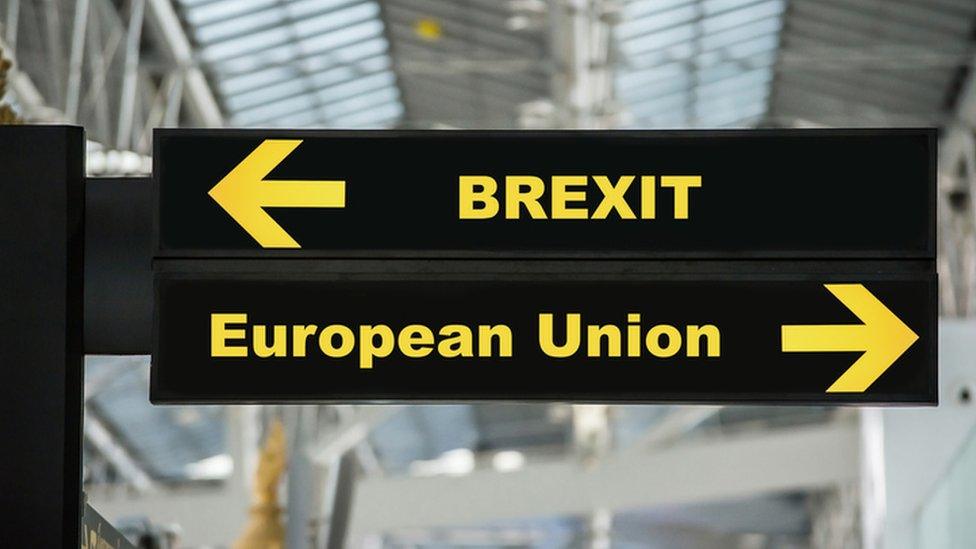EU wants to restrict single market access to UK
- Published
- comments
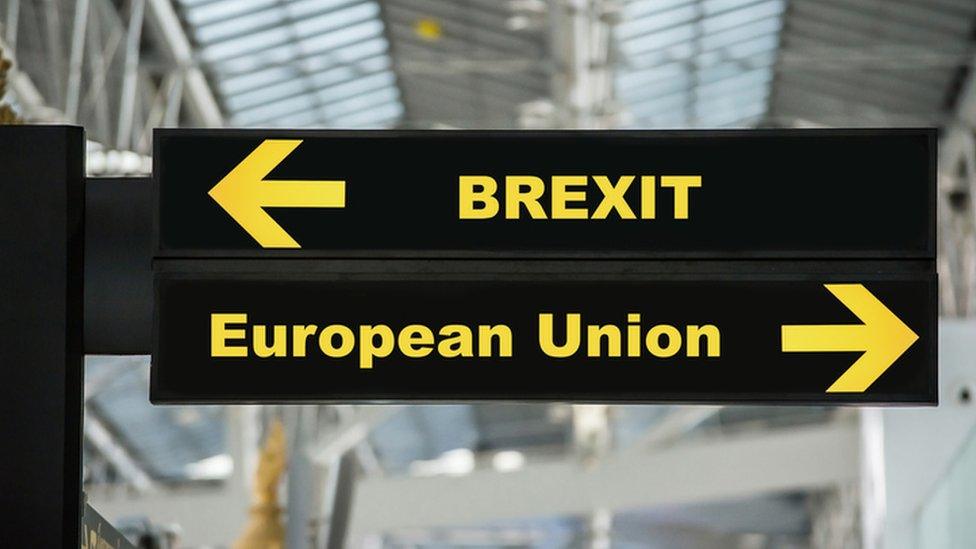
The European Union wants to be able to restrict the UK's access to the single market if there is a dispute after Brexit, a leaked document suggests.
The power to suspend "certain benefits" would apply during the post-Brexit transition phase before the final arrangements come into force.
It is revealed in a draft section of the UK and EU's withdrawal agreement, which has yet to be finalised.
The UK said the document simply reflected the EU's "stated directives".
But it provoked an angry reaction from former UKIP leader Nigel Farage who said the transition deal on offer would be tantamount to creating a "Vichy Britain".
Theresa May is to chair the first of two key Brexit meetings with her senior ministers later as the government faces more calls to clarify the UK's position.
The first Brexit cabinet committee will focus on Northern Ireland and immigration, while trade will be discussed on Thursday.
The transition period is expected to begin straight after the UK officially leaves the European Union on 29 March 2019, and end on 31 December 2020.
The UK says this will allow businesses to adapt to its new relationship with the EU.
The EU says its rules should still apply during the transition period, as will rulings of the European Court of Justice.
'Silly threats'
According to a footnote in the EU papers leaked to journalists in Brussels, if referring a dispute to the EU court would take too long, the withdrawal agreement "should provide for a mechanism allowing the Union to suspend certain benefits deriving for the United Kingdom from participation in the internal market".
It does not go into detail about what disputes could trigger the powers being used, or which parts of the single market could be suspended.
It also says the UK would be consulted about fishing quotas, and would have to pledge not to act against the EU in international organisations.
A Department for Exiting the European Union spokesman said: "This is a draft document produced by the EU that simply reflects their stated directives."
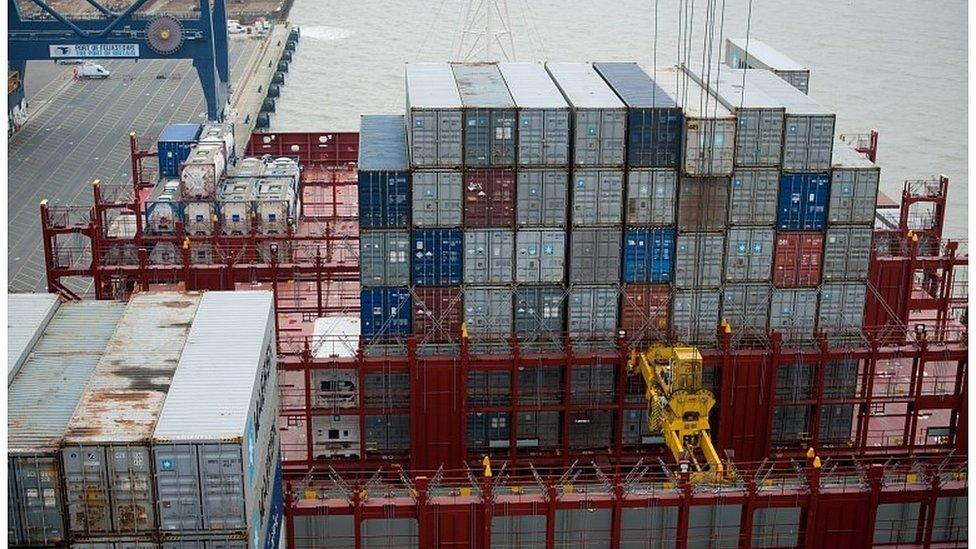
Together with the UK's position as set out last month, it provides a "solid foundation for the negotiations on the implementation period".
The UK plans to continue participating in the single market - which allows frictionless trade and the free movement of people between EU members - during the transition phase, before the final trading relationship - which has yet to be negotiated - comes into force.
Some Conservative MPs are unhappy at the idea of the UK following EU rules but having no say on them, and have warned that when Brexit happens in March 2019 it will be "in name only".
Bernard Jenkin, chair of the Commons Public Administration Committee, said it would be "utterly perverse" if the EU ended up imposing tariffs on British goods given the current levels of alignment between it and the UK.
"This is an indication of how fearful the EU is that they have to make these silly threats," he told BBC Radio 4's Today.
"Of course we are going to do rather well outside the EU and we are going to show the EU up as a rather less successful organisation than it is."
And former trade minister Lord Jones, a leading pro-Leave voice within the business community, said it was increasingly clear no deal was better than a bad one.

Analysis by BBC Brussels correspondent Adam Fleming
We've had position papers. We've had guidelines, directives and a joint report.
This is the first draft of legally-binding words that will end up in the withdrawal agreement - the Brexit treaty that will seal the UK's departure from the EU and a document of real historical significance.
EU sources say it proves that they are getting a move on - "Please! No more position papers" - which the UK wants too.
The EU's suggestion, in a footnote, that the UK's access to parts of the single market will be curtailed if the European Court of Justice cannot solve any disputes within the two-ish year timeframe of the transition, will sound threatening to some.
To others it will sound like an obvious back-up plan to deal with the famously long time it takes for the ECJ to make a decision.
The Brits caution that this is a first draft for the EU27 and does not reflect any negotiations over what they prefer to call the implementation phase.
- Published7 February 2018
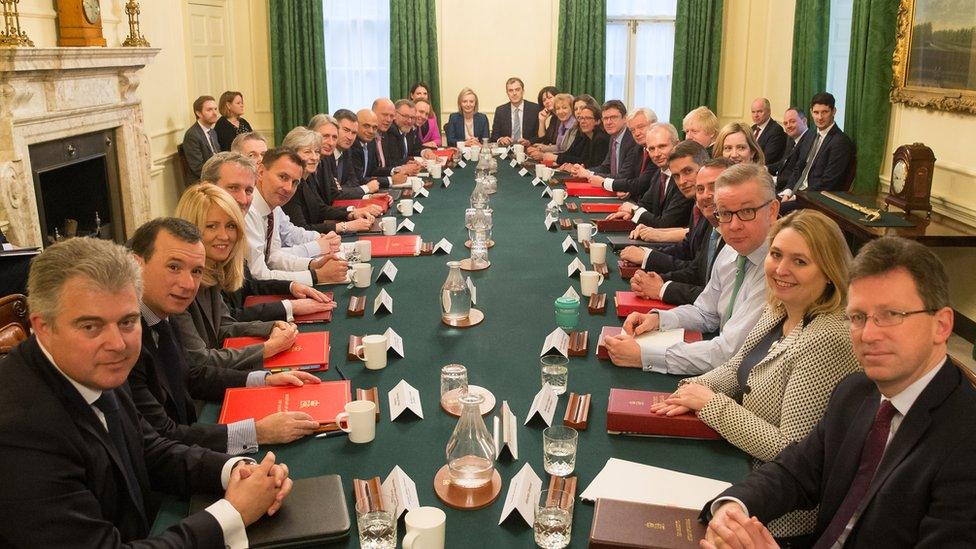
- Published5 February 2018
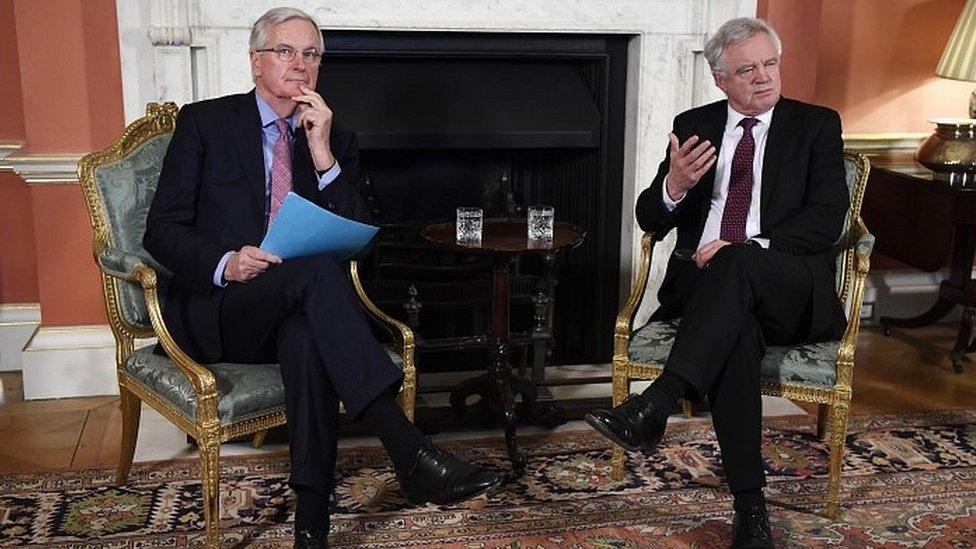
- Published5 February 2018
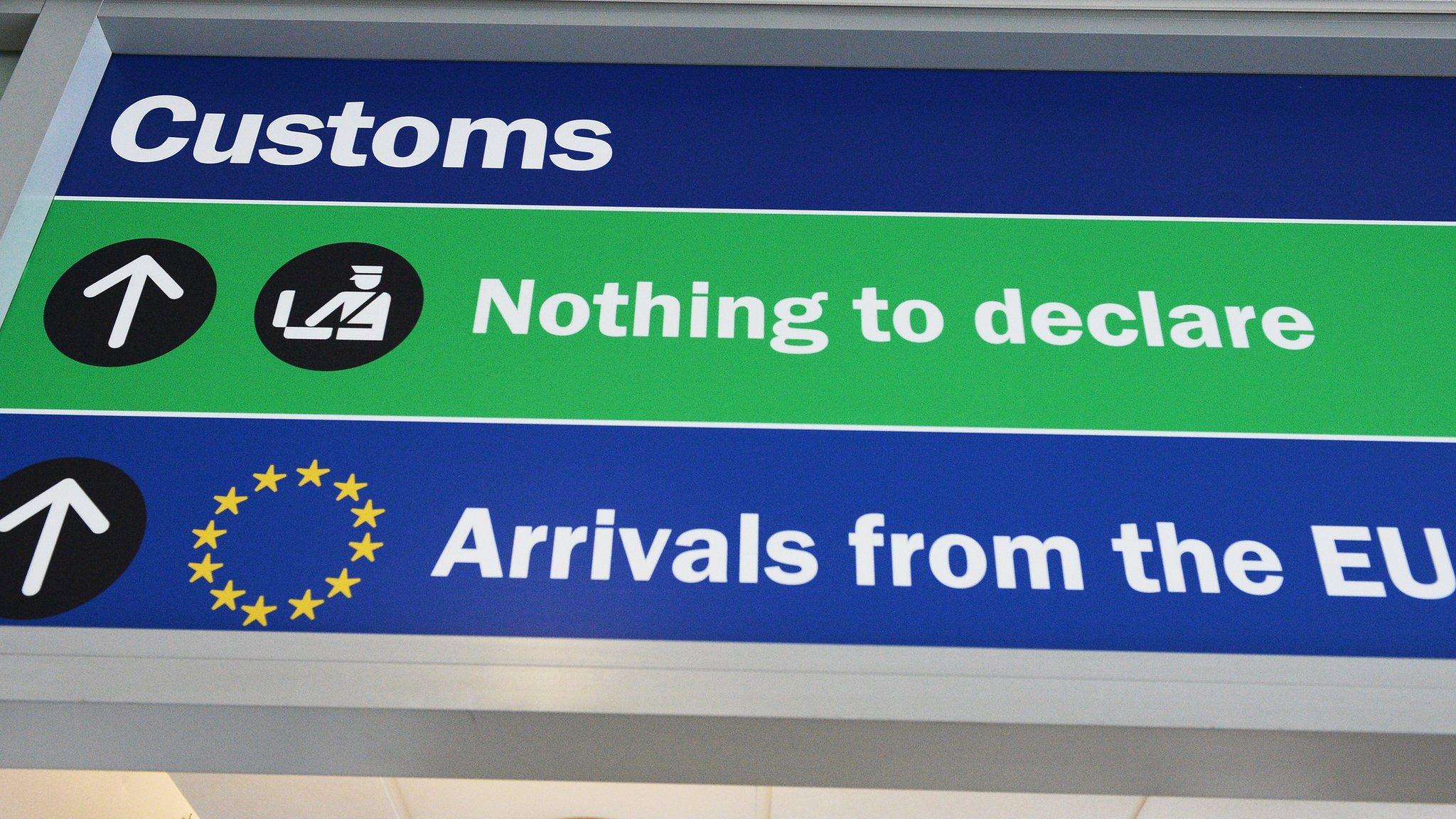
- Published1 February 2018
